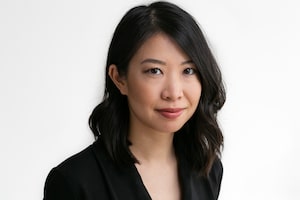John Tory, back right, his wife Barbara Hackett, back left, and their grandchildren, Jack and Isabel, await the results in the Toronto mayoral election in Toronto on Monday, October 27, 2014.Nathan Denette/The Canadian Press
For John Tory, it was a victory 11 years in the making.
After a string of election losses since 2003 – the year of his first unsuccessful bid to become Toronto's mayor – Mr. Tory has finally captured the title of chief magistrate of Canada's largest city.
In his victory speech Monday night, he made reference to his failed past bids. "I know at times in this campaign, things didn't seem too promising, and I know you were probably thinking 'Oh boy here we go again,'" Mr. Tory said to wife Barb Hackett on stage. "Through it all...you stood firm."
To those close to the former Rogers CEO and radio talk show host, Monday night's win was a story of redemption. Others say it was a relief.
Mr. Tory's director of communications Chris Eby, who was in the room with Mr. Tory as he and his family awaited the election results, described those first few minutes as "tense."
"It was a lot closer [between Mr. Tory and Mr. Ford] than most of us thought," he said. "But when the networks started to declare, there was this immediate sense of incredible happiness and relief...when I saw John, he had tears in his eyes."
Mr. Tory's bid for public office first began in 2003 when, as a relative unknown to most Torontonians, he ran and lost against David Miller. And though Mr. Tory followed that up by winning the Ontario PC leadership and two years later with a provincial by-election win, his hopes of becoming Ontario's premier were ultimately dashed after he lost two successive elections in 2007 and 2009.
"I think he viewed his political life as unfinished business. It didn't end the way he wanted it to end," said one senior member of Mr. Tory's campaign. "He wanted to serve in public office."
And though Mr. Tory was urged by those around him to consider running again in 2010, he ultimately declined because "the wounds were too fresh," the campaign member said.
In an interview earlier this month, Mr. Tory acknowledges it was unfinished business that compelled him to run again this time around – but not in the way the source described.
"The unfinished business is the business I think needs to be done at the city," he said. His desire to become mayor, he said, came from a "moral imperative" to help address the city's most crucial issues.
He spoke of some of those issues during his victory speech Monday night, where he spoke of building "a place where there is opportunity for all. A Toronto which is true to our shared values, standing together leaving no one behind."
Mr. Tory's previous runs for office ended unsuccessfully for various reasons – in 2003, the then-unknown cable executive struggled to gain name recognition. And in 2007, he made the famously unpopular promise in the provincial election to extend funding to all faith-based schools – a decision that not only cost him the job of premier, but also left him without a seat at the provincial legislature.
But this time around Mr. Tory has run a relatively gaffe-free campaign, centred around his "Smart Track" transit plan. That, coupled with his campaign's branding of him as a set of "steady hands" after four years of Rob Ford's controversies" helped to finally propel him to victory Monday night.
"I think people underestimated how useful it was running for mayor in 2003," said campaign co-chair Bob Richardson, who also worked on the 2003 campaign. "I think it brought to it a degree of experience that perhaps neither of the candidates have had."
To Mr. Eby, it was all about timing. "It took a lot of guts to do it after losing twice," he said of Mr. Tory. "I just think he's the right guy, in the right place, in the right time. Timing is everything, and this was the right time to do it."
 Ann Hui
Ann Hui